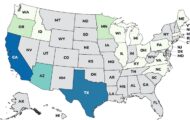A new study has found that older adults, along with their caregivers and health care providers, are not receiving food safety education needed to protect this vulnerable group. The elderly are part of the high risk group of people who are at most risk of developing complications after a food borne illness.
 Scientists at Tennessee State University and RTI International held focus groups to study this issue. They contacted 55 people who work with the elderly, such as nurses, home health care providers, doctors, and relatives, and discovered that most do not have thorough knowledge of food safety rules. Adults over the age of 60 are more likely to suffer severe complications from foodborne illness, which can lead to hospitalization and death.
Scientists at Tennessee State University and RTI International held focus groups to study this issue. They contacted 55 people who work with the elderly, such as nurses, home health care providers, doctors, and relatives, and discovered that most do not have thorough knowledge of food safety rules. Adults over the age of 60 are more likely to suffer severe complications from foodborne illness, which can lead to hospitalization and death.
In the 2011 Listeria outbreak linked to Jensen Farms cantaloupe, most of the ill persons were over the age of 60. The median age in that outbreak was 77. And the outbreak of E. coli 0157:H7 at the Neff’s Lawn Care picnic in Ohio this summer killed a 73-year-old man.
According to the FDA, as we age, our immune systems slow down and reduce the body’s ability to fight infection. This is especially true for anyone over the age of 75. In addition, many elderly people have chronic health conditions such as diabetes, arthritis, cancer, or heart disease, which can further weaken the immune system.
The study found that health care providers do not have the “training, knowledge, and willingness to provide food safety information to older adults.” For instance, the caregivers did not know that in order to prevent Listeria infections in the elderly, deli meats should be reheated to 165 degrees F, and that deli salads and other ready-to-eat processed foods such as soft cheeses and smoked seafood should be avoided. Caregivers who were relatives of the elderly patients were most likely to be well informed in matters of food safety.
Unfortunately, professional health care providers stated they do not talk to their elderly patients about food safety because there isn’t enough time during medical appointments. They were willing to provide brochures and other educational materials. The FDA has specific food safety information for the elderly that is available at the FDA site.




